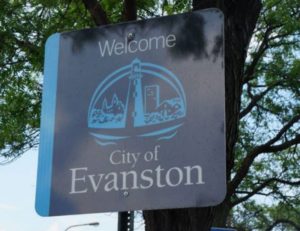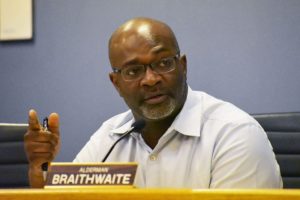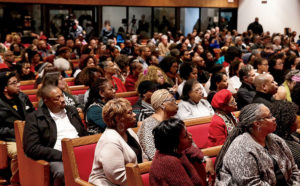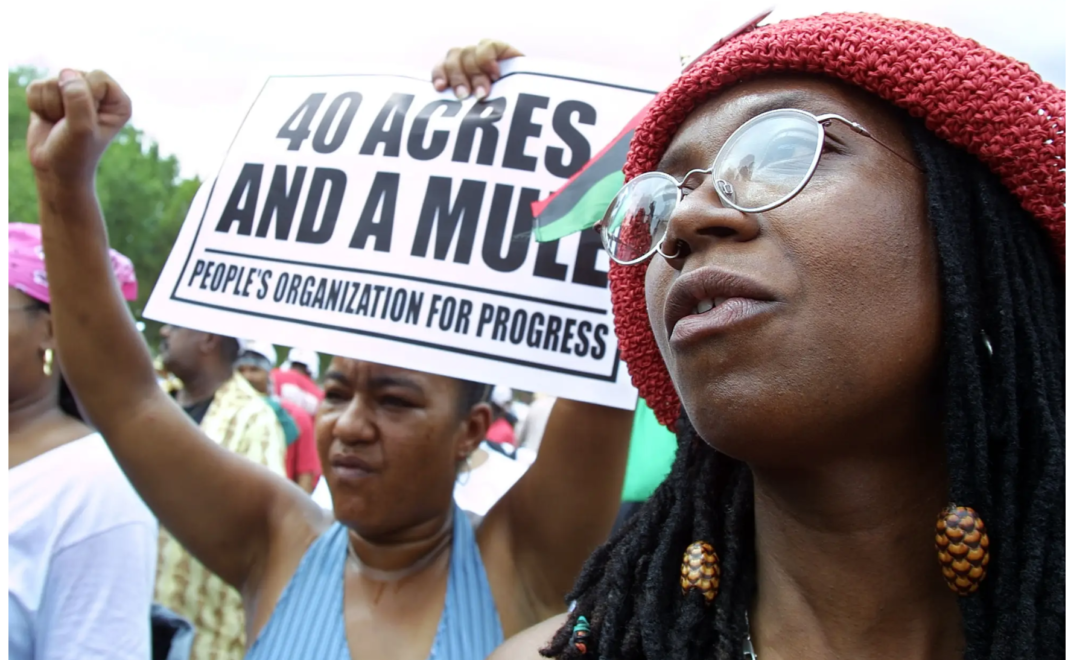As prescribed, “Though Shall Do No Harm” one of the principal tenets of the Bible’s teachings, was included for the purposes of creating a harmonious society – one in which people treated others with respect others and did not commit injurious acts upon others.
Despite the fact years and years have passed during which repeated violations of this basic covenant have transpired, the aldermanic members of the City of Evanston, Illinois’ City Council only just recently made history by being the first in the nation to pass a bill to make reparations to property owners harmed due to racial biases.
So, after numerous decades have elapsed, what prompted the Aldermen of the City of Evanston to take ownership over their past wrongs and take action now?
In speaking with Kimberly Richardson, the Deputy City Manager of the City of Evanston, she explained, “Due to a culmination of societal issues coming to light, racial unrests and contributing factors, the notion that those impacted by these negative and discriminatory actions (now rendered illegal) should receive some form of recompense or retribution for their or their ancestors’ plights resurfaced.”
As the first city in the United States to humbly take responsibility for their past mistakes,

the aldermanic members of Evanston’s City Council invested long hours and went to great lengths to ensure the language used and terms by which recompense will be made was intended to address the specific ‘harms’ done to homeowners or descendants of homeowners affected by the redlining/relocation tactics.
While former Alderwoman Robin Rue Simmons introduced the Reparations Bill in 2019, it was not until two years later, when on March 22, 2021, the City of Evanston announced its passage in a City Council vote of 8:1.
The one lone dissent vote came from Alderwoman Cicely Fleming, who rather than being anti-reparation, considered the way in which the reparations would be made as falling short of what she feels Black people are due and demeaning to their sensibilities.
Specifically, Evanston’s reparations bill stipulates that, in order to qualify, individuals must meet the following dual criteria: a black person who either lived in Evanston between 1919 to 1969 or a descendant of such a person/member of a family victimized by housing discrimination due to policies or practices enforced within the city during the identified time period.
Not intended to make amends for issues related to slavery, in a phone conversation with the Chair of Evanston’s Reparations Committee, Alderman Peter Braithwaite (2nd Ward) explained that the bill speaks directly to the disenfranchisement and segregation that was purposely infringed upon persons of color.

Predating the Federal Housing Act (FHA) of 1968, let alone amendments made to the FHA in 1988, documented evidence clearly shows the discriminatory tactics officials employed to ensure ownership of residential properties within certain sections of the City were only to be transferred by and between White people.
While currently recognized as an illegal requirement of homeownership, tantamount to the perpetuation of widespread malfeasance, during the early to mid 1900s, the inclusion of such clause within a property deed was viewed to as ‘common practice.’
In addition to preventing the transference of homeownership between different races, records indicate that – solely on the basis of skin color – homeowners within certain parts of Evanston were also forced to relocate to the Westside, a less desirable part of the City.
And, while former Ald. Simmons (2017-2021), the bill’s original sponsor, is credited with its passage in March of 2021, contributing efforts that led up to its ultimate passage are attributed to the earlier work of the Honorable Lionel Jean-Baptiste, of the 9th Sub-circuit Court, who formerly served as Alderman of Evanston’s 2nd Ward from 2001-2011.
Under Jean-Baptiste’s tutelage as a relatively new alderman, he introduced a preliminary reparations resolution in 2002; one which called for a study of the historic housing wrongs committed by officials in the City of Evanston and for a public acknowledgement of such offenses to be made.
Of his delight in getting a bill passed, the Honorable Jean-Baptiste, a fervent advocate of fairness and equity, shared in a recent telephone conversation, “How we live our lives; make choice and evolve in society, we become that which we practice.”
Hence, the Reparations Bills/Restorative Housing Program (RHP), as was formally drafted, acknowledges the harms caused to some Black residents of the City of Evanston due to not only discriminatory housing policies and practices but also to harms attributable to the lack of actions taken by the City.
Further, the RHP calls for the revitalization, preservation and stabilization of person of colors’ residency within the City of Evanston; and the increased homeownership, building of wealth, and improved retention rates among members of such populations.
As Richardson detailed, “Applicants deemed to be eligible recipients, will be entitled to receive upwards of $25,000 (with a total of $10 million dollars pledged to be distributed over the course of 10 years) to be used for home repairs or for down payments to purchase property in the City of Evanston.”
Richardson, as well as Ald. Braithwaite, emphasized that the moneys used to fund the Reparations Bill would not come from property taxes but rather from a 3 percent sales tax being levied upon the (recently legalized) sale of recreational marijuana products from licensed dispensaries.
Despite the fact Simmons is no longer a sitting alderwoman (she opted no to run for reelection in 2021) with the City of Evanston, she was approved to remain an active member of the Reparations Committee; along with Ald. Peter Braithwaite, who will serve as it chair, and supported by both Aldermen Bobby Burns (5th Ward) and Devon Reid (8th Ward).
Additionally, the committee will be made up of the following local citizens, all of whom were selected as part of process of review initially begun under the outgoing Mayor Stephen Hagerty then parlayed over onto the incoming Mayor Daniel Biss with approval granted by Evanston’s City Council.
- Bonnie Lockhart, a lifelong Evanstonian and current board member of Dementia Friendly Evanston.
- Claire McFarland Barber, the founder and executive director of the Elder Law & Wellness Initiative.
- Carlis Sutton, a 50-year resident of Evanston and retired District 65 and District 202 school teacher.

The City of Evanston reports that the responsibilities of the Reparations Committee will be to both: shape a plan to successfully implement the recently approved Restorative Housing Program and make recommendations on how to best allocate funds to address patterns of discrimination throughout history and to further encourage/incentivize housing and economic development.
Ald. Braithwaite said they needed to be careful in the drafting of the bill as, “There is a potential lawsuit waiting to happen around every corner. So we need to be very mindful of how we structure the language… We are the first and hopefully we can make it easier for those to follow.”
In commending the tireless work of former Ald. Simmons and current Ald. Braithwaite, as well as, historian Dino Robinson of Evanston’s Shorefront Legacy Center who detailed the infringements made upon citizens’ rights in his landmark 90 page report, the Honorable Jean-Baptiste said, “They have taken on my work and moved on it in their shoes.”
He further illuminated upon the dynamics of their approach, the goodness, fairness and creativity put forth in the resolution prepared by Evanston’s Corporate Counsel and how the sustained efforts by legislators in Washington DC have kept reparations in the forefront of people’s hearts and minds.
Specifically, Jean-Baptiste spoke of the House of Representatives Bill-40 (HR-40). First introduced in 2017 by House Representative John Conyers (D-MI), it is presently being sponsored by Representative Sheila Jackson Lee (D-TX). In referring to the bill’s pending passage in the US, Jean-Baptiste said it’s passage would grant approval for not only the study of reparations but that it would also illuminate the impact slavery made and the innumerable harms it inflicted upon the citizens of our country.
Along with Congress’ consideration of passing a reparations bill, paving the way for other cities to follow, Ald. Braithwaite said he has received multiple phone calls from such municipalities as: Amherst, Massachusetts, and Minneapolis, Minnesota, with inquiries as to how to go about the process. He contends that each area has a different set of factors that contributed to the creation of their harms so the drafting of their respective areas’ legislative materials will need to reflect the unique set of circumstances that impacted their localities.
*Note: Additional U.S. cities including: Asheville, North Carolina and Providence, Rhode Island, among others, are also in the early stages of assessing the need for reparations bills.
Back in Evanston, currently they are in the early stages of the application phase whereby those who may meet the eligibility requirements are encouraged to submit forms and, over the next couples of months, City Council staffers will review and verify their claims. Additionally, meetings of the Reparation Committee will convene in order to define the best strategies and practices to employ going forward.
In describing current-day Evanston as a city that no longer perpetuates segregation but it as a gentrified, more livable community, Ald. Braithwaite praised Evanston’s willingness to recognize the facts and agree to correct the wrongs that had been done, “I am very supportive and looking forward to building upon our efforts to remedy past harms by providing funds to black communities to help collectively bring about economic development.”
Yet, as Evanston pledges to do better and make reparations for harms committed in the past, their efforts can only go so far through financial remunerations rather the real change must occur in people’s actions and attitudes.
Reaffirming this sentiment, Ald. Braithwaite stated, “This is just the first step in a thousand…we still have a ways to go in terms of achieving true equality and justice for all.”


